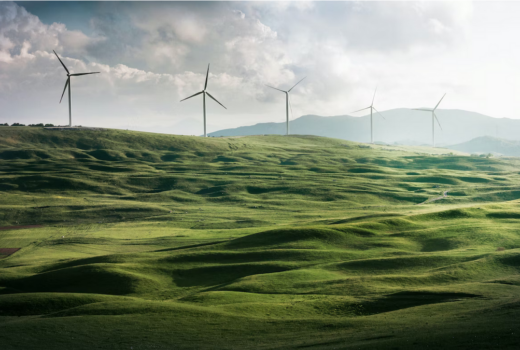Verzuring van oceanen onderzocht
Hiermee worden beleidsmakers geadviseerd over kritieke grenzen in het mariene systeem, die vanuit het oogpunt van duurzaamheid niet overschreden zouden mogen worden. NIOZ is een van de partners in dit grote project.
The World’s oceans cover over 70% of the planet’s surface, contribute half of its primary production and contain an enormous diversity of life. Thus it is not surprising that they provide invaluable resources to human society. They also play a vital role in Earth’s life support system due to their impact on climate and global biogeochemical cycles and due to their capacity to absorb atmospheric carbon dioxide (CO2).
The oceans currently absorb half of the CO2 produced by burning fossil fuels.
Put simply, climate change would be far worse if it was not for the oceans. However, there is a cost to the oceans. When carbon dioxide dissolves in seawater, it forms carbonic acid. As more CO2 is taken up by the oceans surface, the pH (a measure of acidity, the lower the pH the greater the acidity) decreases, moving towards a more acidic state. This change is called “ocean acidification” and is happening at a rate that has not been experienced for at least 400,000 years and probably for the last 20 million years.
The overall goal of the European Project on Ocean Acidification (EPOCA) is to fill the numerous gaps in our understanding of the effects and implications of ocean acidification.
• EPOCA aims to document the changes in ocean chemistry and biogeography across space and time. Paleo- reconstruction methods will be used on several biological archives, including foraminifera and deep-sea corals, to determine past variability in ocean chemistry and to tie these to present-day chemical and biological observations.
• EPOCA will determine the sensitivity of marine organisms, communities and ecosystems to ocean acidification. Molecular to biochemical, physiological and ecological approaches will be combined with laboratory and field-based perturbation experiments to quantify biological responses to ocean acidification, assess the potential for adaptation, and determine the consequences for biogeochemical cycling. Laboratory experiments will focus on key organisms selected on the basis of their ecological, biogeochemical or socio-economic importance. Field studies will be carried out in regions of the ocean deemed most sensitive to ocean acidification.
• Insights into the impacts of ocean acidification will be integrated in biogeochemical, sediment and coupled ocean-climate models to better understand and predict the responses of the Earth system to ocean acidification. Special attention will be paid to the potential feedbacks of the physiological changes in the carbon, nitrogen, sulfur and iron cycles.
• EPOCA will assess uncertainties, risks and thresholds (“tipping points”) related to ocean acidification at scales ranging from sub-cellular to ecosystem and local to global. It will also assess pathways of CO2 emissions required to avoid these thresholds and describe the change and the subsequent risk to the marine environment and Earth system, should these emissions be exceeded.
Led by the Centre National de la Recherche Scientifique (CNRS), the EU Framework 7 Collaborative Project EPOCA is run by a consortium of 27 partners across 9 countries involving many of the leading oceanographic institutions across Europe and more than 100 permanent scientists. The budget of this 4 year project is 16.5 M€ with a contribution from the European Commission of 6.5 M€. EPOCA will officially be launched during a kickoff meeting in Nice (France), 10-13 June 2008.
Meest Gelezen
Wederom intimidatie van journalisten door universiteit, nu in Delft
‘Burgerschapsonderwijs moet ook verplicht worden in hbo en wo’
Raad van State: laat taaltoets nog niet gelden voor hbo-opleidingen
Vrouwen houden universiteit draaiende, maar krijgen daarvoor geen waardering
Extra geld voor bètafaculteiten is daar nooit terechtgekomen



